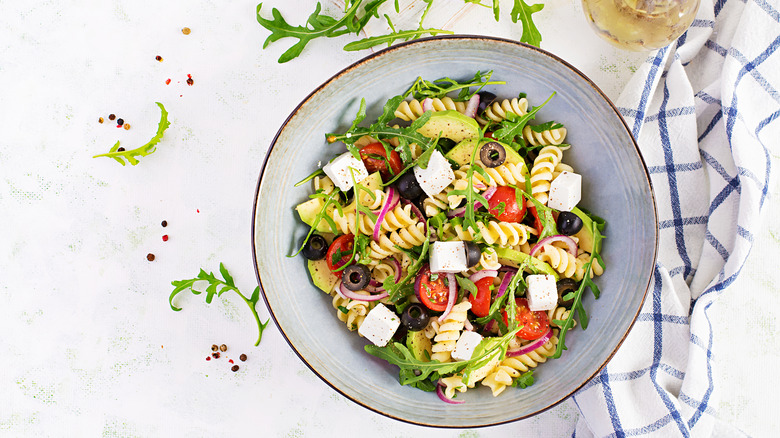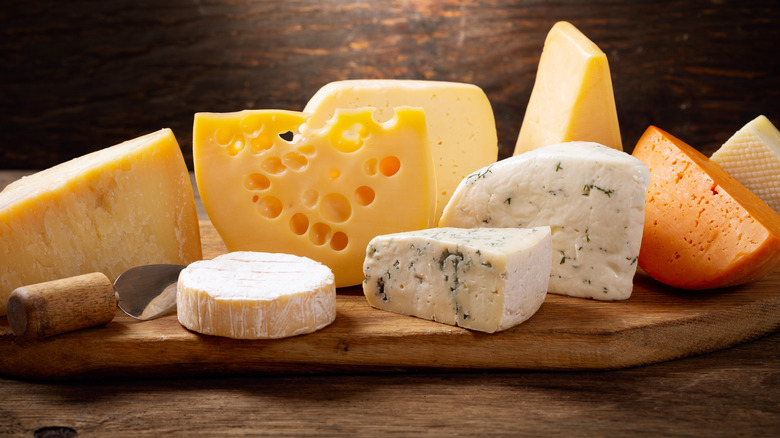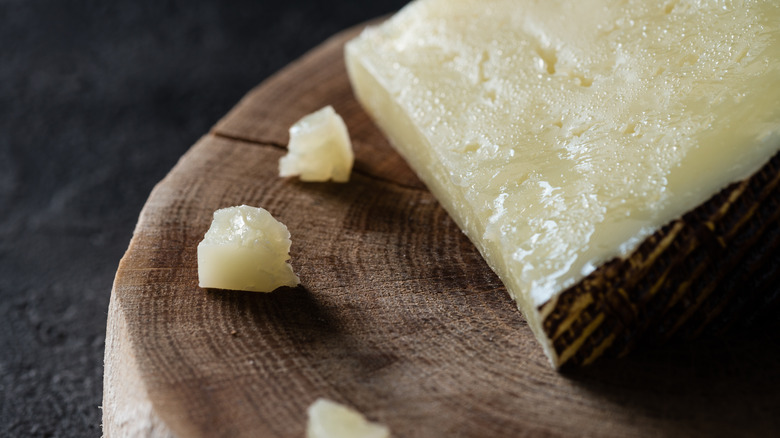The Type Of Cheeses You Should Absolutely Never Mix Into A Pasta Salad
Growing up you might have learned all about the five food groups. It can be hard to always ensure that you're eating a balanced meal, but one way to simplify the process is to just eat more pasta salads. As Fit People reports, many pasta salads have a beneficial balance of proteins, sugars, carbohydrates, and fats to fuel your body.
Yes, you can always grab a premade pasta salad at the store, but as culinary scientist Jessica Gavin points out, by making your own at home, you have control over the flavor and nutrition of your salad. Most recipes feature plenty of meats, dairy, grains, and vegetables to ensure that you have a balanced bite on every spoon or fork full. Detroit Free Press adds that you can even boost a pasta salad's nutrition by choosing the right pasta, adding more vegetables, and opting for a lighter dressing. No matter what you decide to include you can always spice it up with some Salad Supreme seasoning as well.
One key to the pasta salad is making sure that everything comes together cohesively though, and that's why it's important to choose the right kind of cheese.
Add cheese responsibly
The world is full of delicious cheeses, and it can make selecting one properly a bit of a challenge. It's hard enough to build a cheese board, but you would think that throwing some cheese into a pasta salad would be easy, right?
As Serious Eats notes, not all cheeses are created equal, and having the wrong kind your salad could make some trouble. One of the key features to look out for is texture. As TidyMom points out, shaving or grating hard cheeses like Parmesan or pecorino are great options for adding a sharp bite to your pasta salad. Meanwhile shredding or crumbling soft, fresh cheeses like mozzarella and feta can also bring a creamy tang to your pasta salad.
Serious Eats says that where you can go wrong though is by choosing an ooey-gooey washed rind cheese. These soft, spreadable cheeses like brie or camembert are not going to mix well with the other ingredients. Semi-hard cheeses like gouda, gruyere, and cheddar will also cause problems. But rather than ruin the texture, they just might ruin your pasta salad's presentation.
Avoid sweaty cheeses
According to Serious Eats, the problem with many semi-hard kinds of cheese is that they tend to start sweating. That means that before you've finished your bowl of pasta salad at the picnic you might have semi-moist cubes of cheese staring back at you.
Foodiosity says that the "sweat" you see on your cheese is simply the moisture in the cheese being pushed out by the salt or milkfats that are present in the cheese. As cheese sits exposed to the open air, or in warmer temperatures, this moisture starts to appear on the outside of the cheese. It can even get so bad that the cheese starts to dry out and even crack.
Foodiosity points out that there's no danger to this sweaty cheese. The flavor might be affected by drying out, but it should be safe to consume as long as there is no mold on the cheese's surface. This will likely only occur in extreme scenarios where the moisture has been present on the cheese's surface for far too long.
So, the next time you're making a pasta salad, stick to the safe bets like Parmesan or mozzarella. Of course, if you live for having cheddar cubes in yours and don't mind a little sweat, by all means, go ahead.


